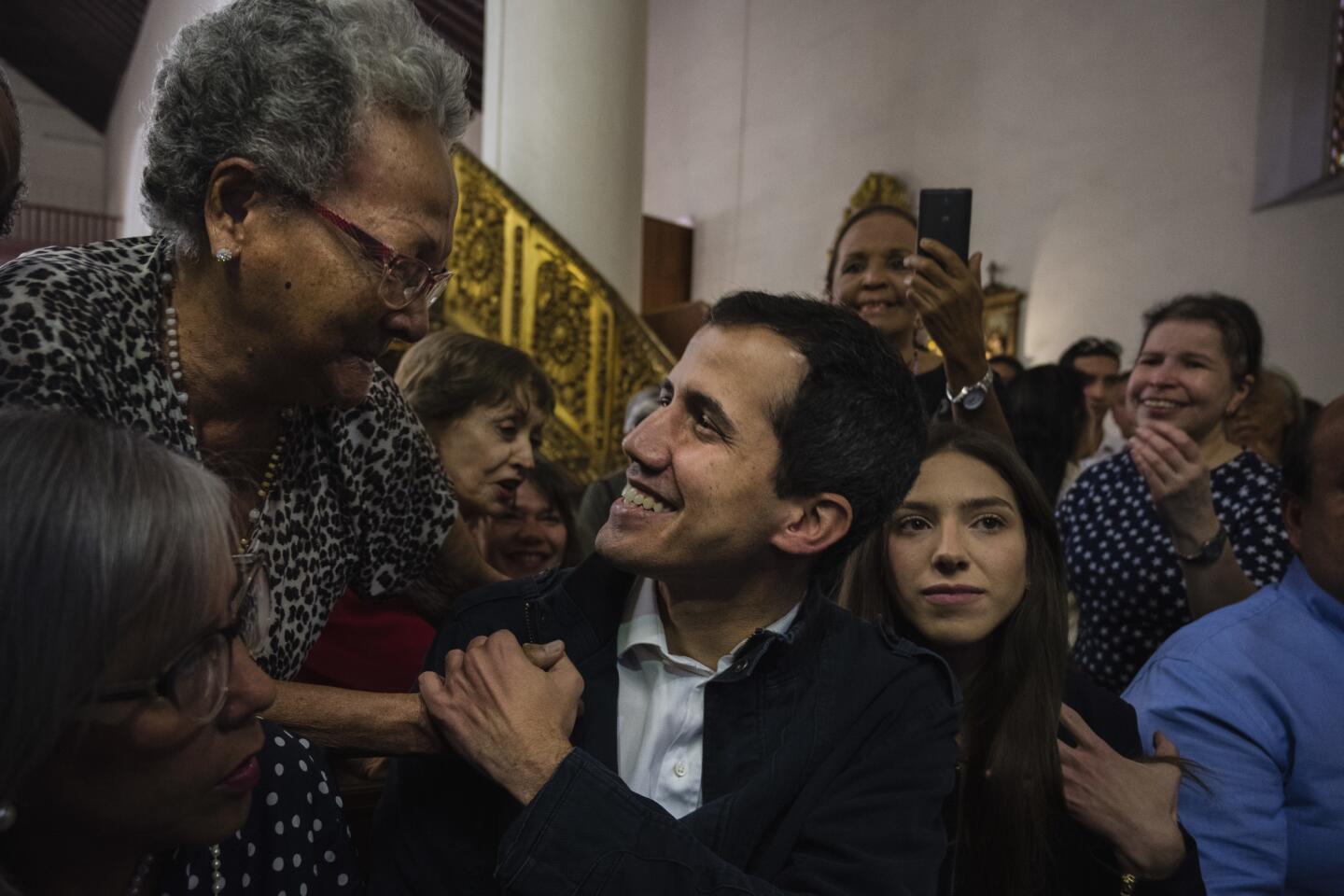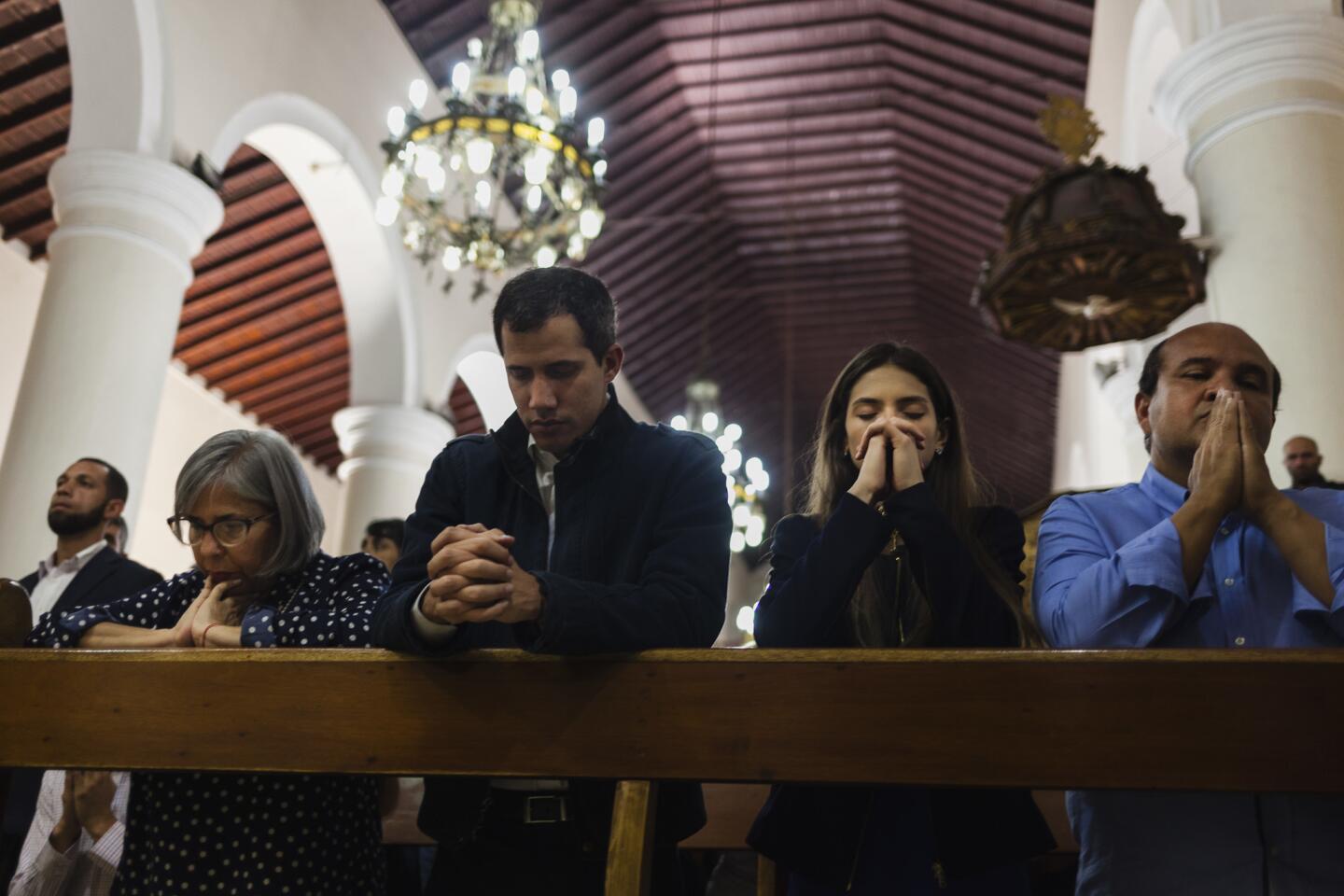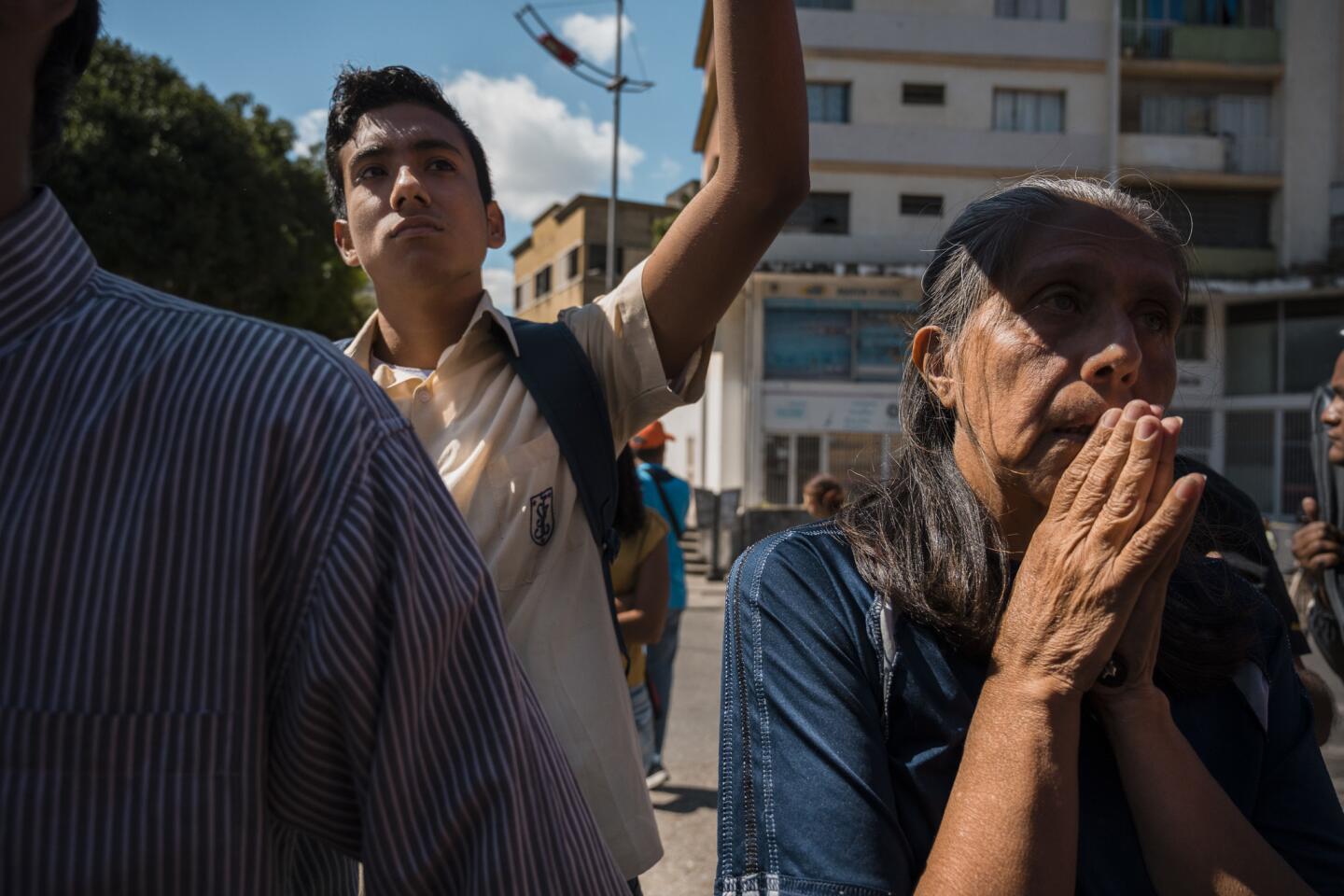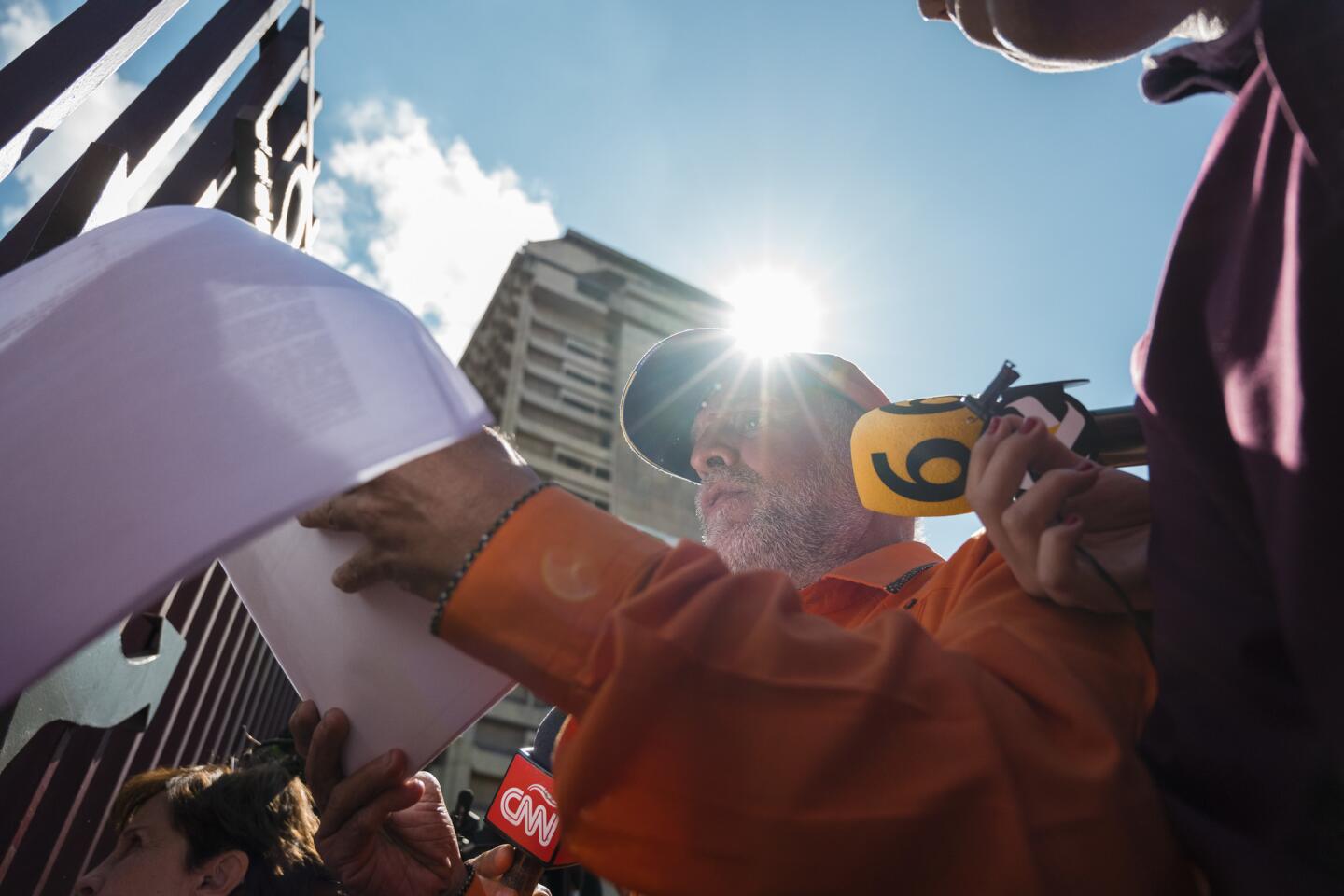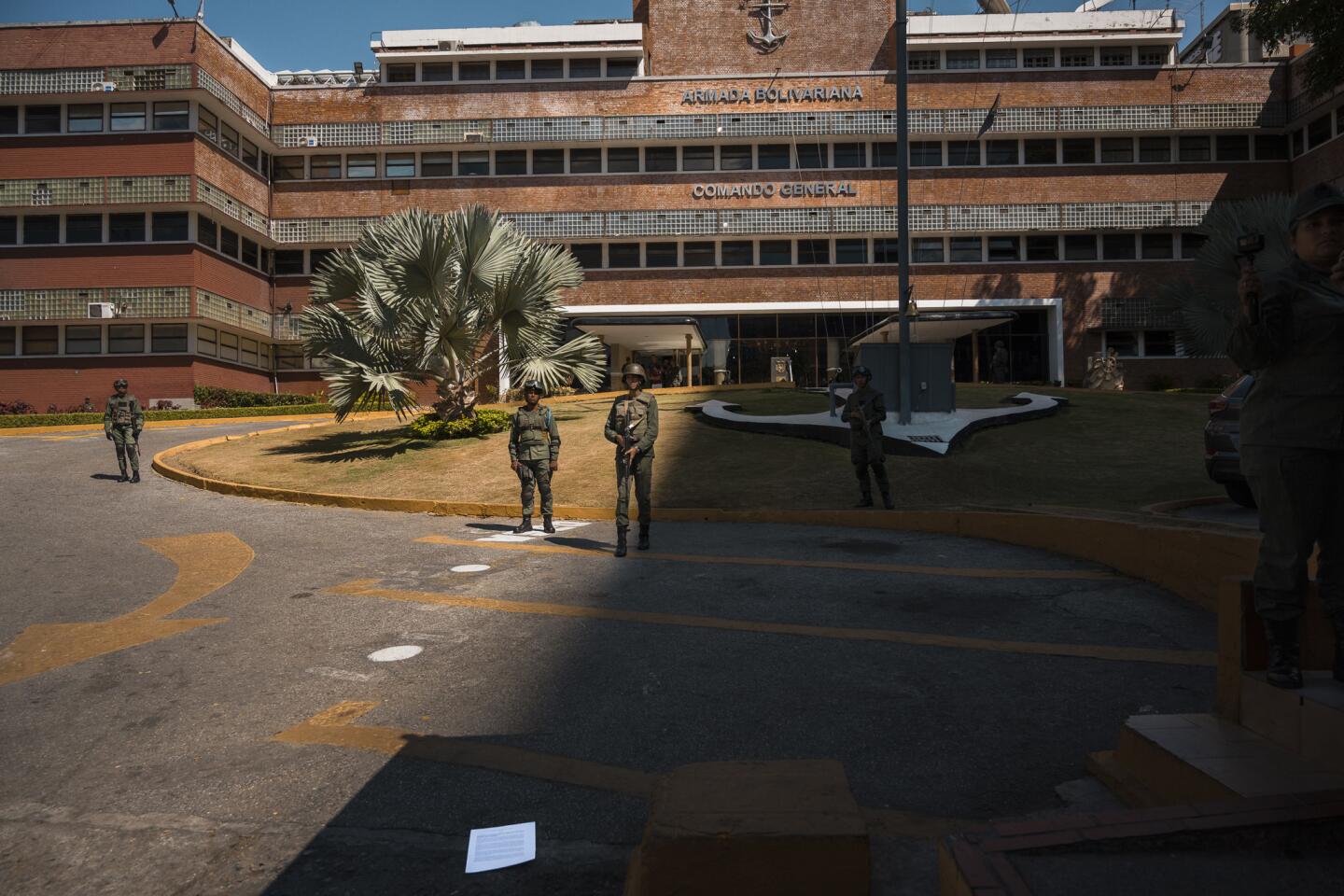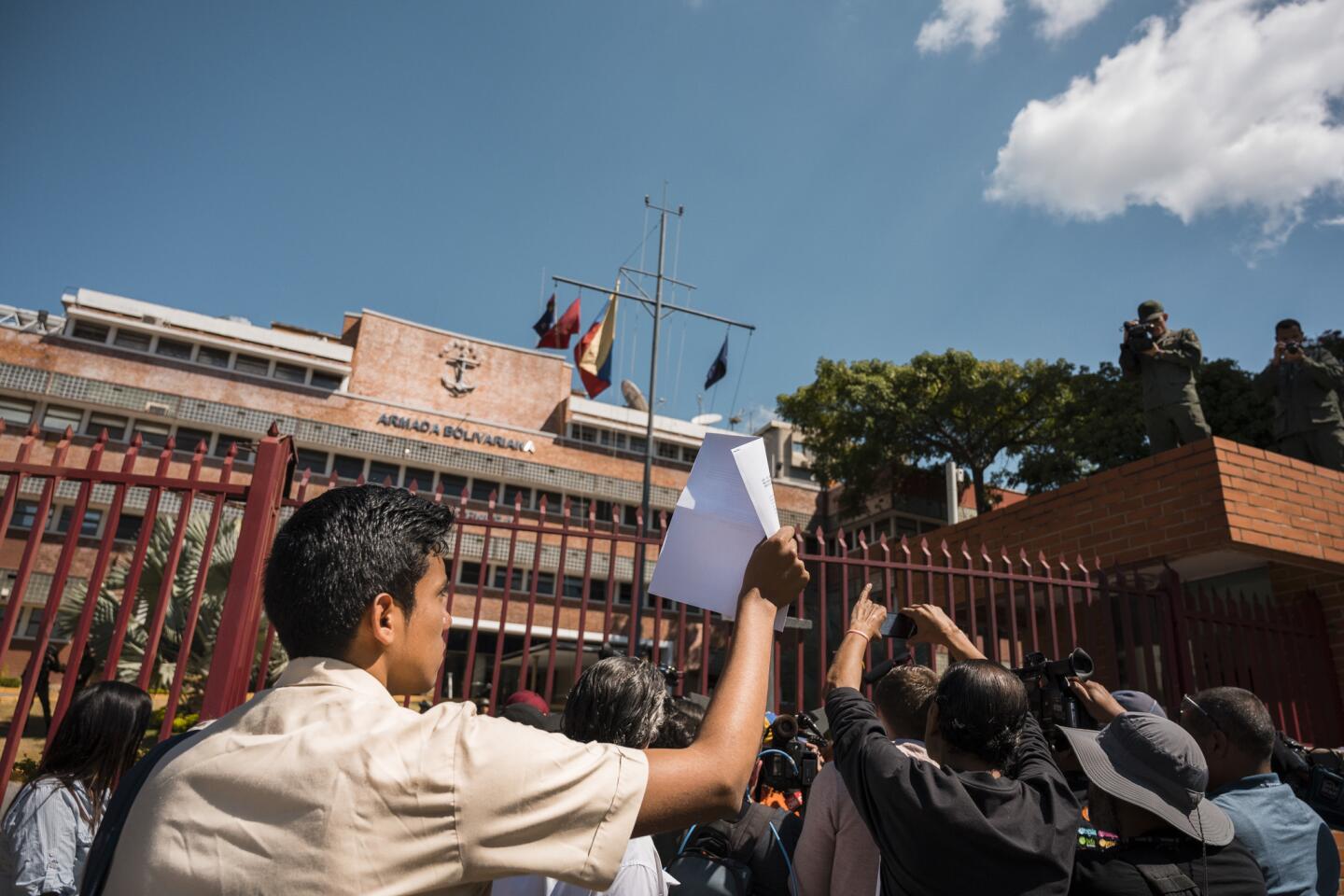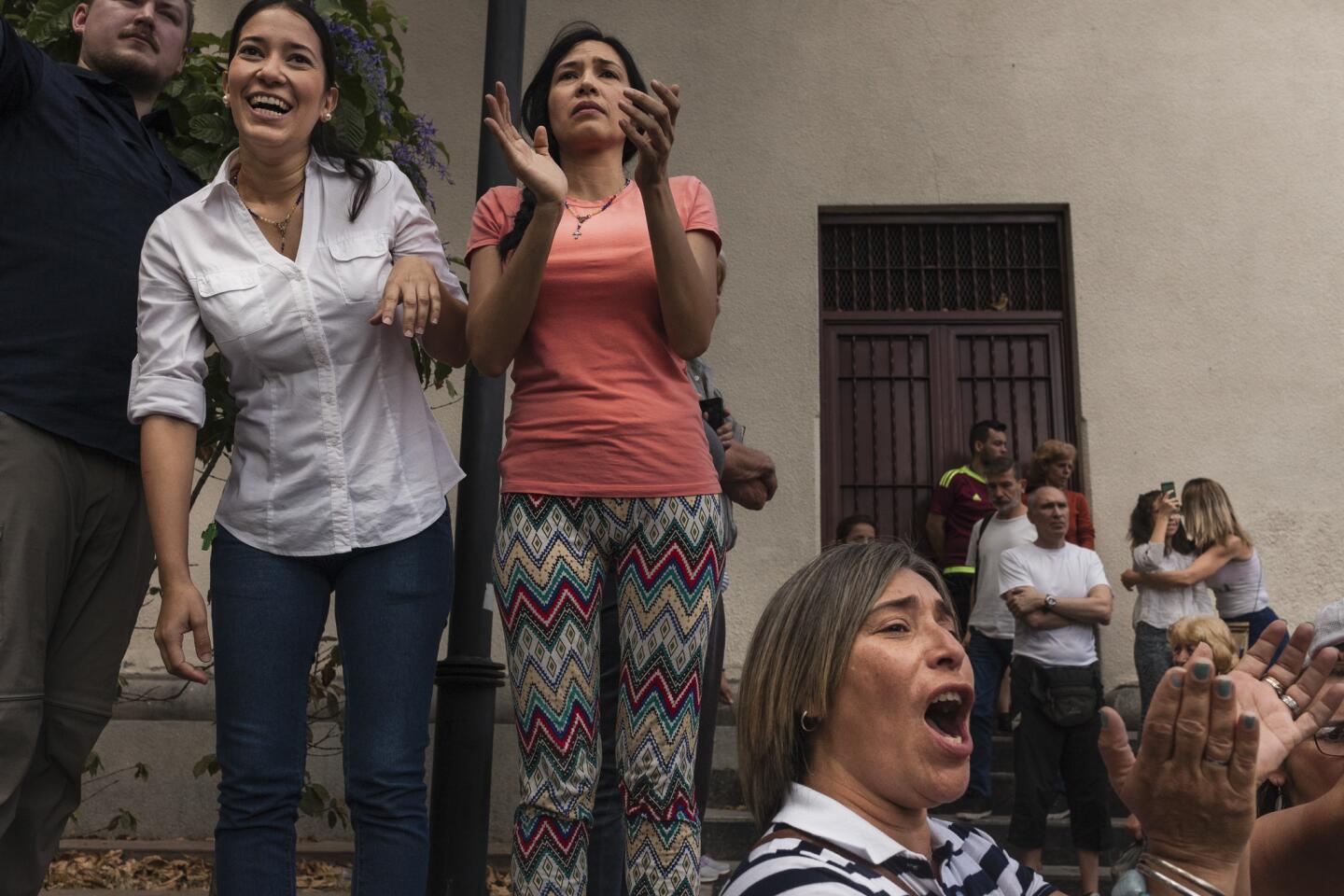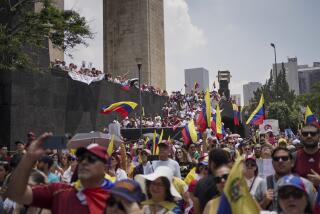Venezuela President Maduro and rival Juan Guaido aim their messages at the military
Reporting from Caracas, Venezuela — Venezuelan President Nicolas Maduro, while visiting military installations in the state of Carabobo on Sunday, urged government forces to remain united as a way to destroy what he called a current attempt at a coup d’etat.
“Our armed forces are prepared and ready to defend the national sovereignty and territorial integrity before attempts to harm our sacred fatherland,” Maduro said in a tweet issued from the Ft. Paramacay army base in Naguanagua, Carabobo state.
Meanwhile, Maduro’s main opponent, Juan Guaido, the head of the National Assembly who last week declared himself the country’s interim president, also reached out to members of the military.
“Soldiers, I give you an order: Don’t shoot at the Venezuelan people. Do not repress peaceful demonstrations and don’t massacre our youths,” Guaido said after attending a Roman Catholic Mass at the Chacao church in eastern Caracas, the capital. “In Miraflores [presidential palace] they believe torturing our people will stop the protests. We will not tire nor be intimidated.”
The appeals to the military by the two rivals were among the latest moves to determine whether authoritarian Maduro will hold on to power and continue to run the country, which suffers from myriad problems including extreme poverty, or whether Guaido and his supporters will succeed in removing the president.
Several countries, including the United States, have stated their support of Guaido. The U.S. on Saturday urged the U.N. Security Council to recognize Guaido as Maduro’s replacement.
After attending the Mass, dedicated to political prisoners and victims of government repression, Guaido called on the United Nations to investigate attacks on his supporters and human rights violations. Venezuelans are experiencing a grave crisis, he said.
Guaido declared himself president during a mass protest in the capital on Wednesday after describing Maduro as a dictator. The socialist leader won reelection to a second six-year term in voting last May and has rejected the idea of new elections.
Guaido supporters on Sunday printed copies of his proposed amnesty law and delivered it to police stations and armed forces bases in several cities. If passed, police and soldiers who “work for the restitution of constitutionality” would be exonerated from any alleged crimes, a move that analysts describe as a means of encouraging authorities to resist Maduro.
The impact of such a law is questionable since the National Assembly that Guaido heads has seen its power neutered by several Maduro moves, including a newly created constitutional assembly that critics at home and abroad have described as dictatorial. The supreme court declared all assembly laws to be “null and void.”
“Today we have extended a hand to police and soldiers. The amnesty is to generate governability and an advance in [the process of] political change,” Guaido told reporters. “Neighbors and friends have approached police and military bases and have said to the functionaries, ‘We know you receive orders but we are waiting for you’” to join the protests against Maduro, he said.
In the central Caracas neighborhood where the presidential palace is located, streets leading to the palace were barricaded and guarded by armed soldiers who in some places crouched behind sandbags and barbed-wire barriers.
The Maduro government late Saturday relented on its demand that U.S. Embassy personnel leave the country by Sunday. In a statement, Maduro’s Foreign Ministry said there was a 30-day grace period during which the U.S. and Venezuela would negotiate a new, downgraded diplomatic relationship involving “interest offices.”
U.S. national security advisor John Bolton on Sunday posted a social media message threatening “a significant response” if Venezuelan authorities harmed or intimidated U.S. personnel.
Also on Sunday, Pope Francis, at an appearance at a Roman Catholic youth conference in Panama, called for a “just and peaceful solution” to the Venezuelan crisis. Francis has attempted to mediate a resolution between the two sides in the past but the efforts have failed to sustain a dialogue.
Roman Catholic bishops in Venezuela said in a statement this month prior to his inauguration Jan. 10 that Maduro’s new presidential term is “morally unacceptable” because “his government has caused a human and social deterioration in people and in the wealth of the nation.”
“We can only imagine the suffering the people will have to experience in a new term of the Maduro government if it does not implement the necessary corrections to make for an integral change in politics and political actors,” said Msgr. Jose Luis Azuaje, president of the Venezuelan bishops’ conference.
Venezuelans are suffering from hyperinflation, food shortages, shrinking economic output and disappearing industry and jobs. At least 2 million citizens have fled the country in search of better lives since the socialist government took hold in 1999.
Guaido said another mass demonstration was planned to demand that the Maduro government allow the entry of humanitarian aid, including food and medicine, which so far the president has blocked.
Mogollon is a special correspondent.
More to Read
Sign up for Essential California
The most important California stories and recommendations in your inbox every morning.
You may occasionally receive promotional content from the Los Angeles Times.
